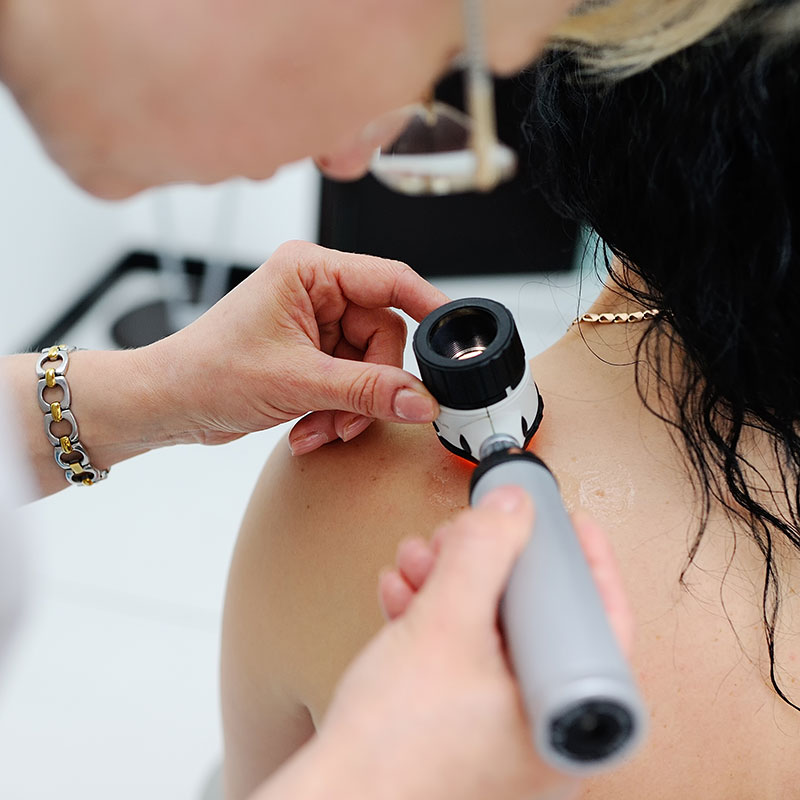Skin Cancers
Basal cell carcinoma and squamous cell carcinoma are two of the most common types of skin cancers. Basal cell carcinoma is a pink or reddish spot that grows slowly on the skin and sometimes is mistaken as a harmless pimple, scar, or sore. Squamous cell carcinoma is a rough patch, a wart-like growth, or a sore on the skin, in the mouth or genital areas. Ultraviolet light exposure, age, fair skin colors, certain types of viral warts, suppressed immune systems due to cancer or organ transplant are some of the common risk factors. Basal cell carcinoma and squamous cell carcinoma are highly treatable if diagnosed early. Early treatment also prevents them from invading and damaging adjacent skin, blood vessels, nerve endings, or spreading to lymph nodes and other organs.
Melanoma, on the other hand, is a serious form of skin cancer. It is extremely important to detect and treat melanoma early as it can spread rapidly in the body. The telltale signs of an atypical mole or melanoma are 1) Asymmetric shape, 2) irregular Border, 3) uneven Color, 4) Diameter greater than 6mm, 5) Evolving change. These are famously called the ABCDE guidelines for melanoma screening that have saved many lives.


